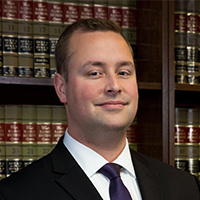Davis Bankruptcy & Debt Lawyer, Illinois
Sponsored Law Firm
-
 x
x

Click For More Info:
-
PMJ PLLC
100 S State St Chicago, IL 60603» view mapBankruptcy & Debt Working Relentlessly For You
Patrick is the Founder of PMJ PLLC and has more than 20 years of experience.
800-901-4721
Thomas Laye
✓ VERIFIEDAccident & Injury, Divorce & Family Law, Estate, Bankruptcy & Debt, Business
Thomas was born and raised in Cherry Valley, Illinois. He attended Western Illinois University where he received his Bachelor’s in Law Enforcement a... (more)
Gary Flanders
Bankruptcy & Debt, Commercial Bankruptcy, Consumer Bankruptcy, Bankruptcy
Status: In Good Standing Licensed: 44 Years
FREE CONSULTATION
CONTACTDavid Francis Monteleone
DUI-DWI, Civil Rights, Collection, Medical Malpractice
Status: In Good Standing
Thomas R. Jakeway
Banking & Finance, Corporate, Contract, Credit & Debt
Status: In Good Standing Licensed: 21 Years
Lucinda Bugden
Traffic, Divorce & Family Law, Criminal, Bankruptcy
Status: In Good Standing Licensed: 33 Years
James C. Thompson
Landlord-Tenant, Transactions, Collection, Education
Status: In Good Standing Licensed: 36 Years
George P. Hampilos
Child Support, Corporate, Business Organization, Bankruptcy, Estate Planning
Status: In Good Standing Licensed: 32 Years
Dennis Lee Leahy
Immigration, State Appellate Practice, Social Security, Bankruptcy
Status: In Good Standing Licensed: 48 Years
 Patrick Jones Chicago, IL
Patrick Jones Chicago, IL Practice AreasExpertise
Practice AreasExpertise

